The 10th MENA Regional Summer School designed to discover the Commonsverse
2 – 8 June 2024, Tunis, Tunisia
Building upon the success and rich history of previous editions, the Tunis office, in collaboration with the Rabat, Ramallah, and Beirut offices, organized the 10th MENA Regional Summer School of the Heinrich Böll Foundation from June 2nd to 8th, 2024, titled “Commons and Beyond: Discovering the Commonsverse”. This year’s edition aimed to delve into the multifaceted world of Commons practices in the context of our programme on Transformative Economics.
The Commons, in its various forms, represent shared resources, spaces, and ideas essential for the well-being of individuals and communities alike. This concept encompasses natural resources like land, water, and biodiversity, as well as urban spaces, cultural and knowledge Commons, including the arts, education, the internet, and technology.
The theory and practice of the Commons have been central to the Foundation’s search for alternative development methods, enabling self-organization and building community resilience during multi-layered existential crises. The Commons challenge the predominant understanding of capitalist economics and offer options to democratize local economies. Over more than two decades, the Foundation has invested in in-depth research, network building, and advocacy to defend, discover, or rediscover the Commons and related community practices in different parts of the world.
This 10th edition of the Foundation’s MENA Regional Summer School launched a highly relevant thematic field for the MENA region. Thirty-four activists, researchers, and civil society actors from various MENA countries, as well as representatives from our four regional offices, gathered in Tunisia to explore the dimensions of the Commons and their relational power to build resilient, self-determined communities. The learning journey aimed to discover existing, forgotten, or new contemporary practices that can transform societies, economies, and local governance systems.
The Tunis office has already launched an impressive work on the Commons as part of its transformative economics axis within the Ecological Transformations Program. Hence, an identification of practices and initiatives that are in line with the Commons has been documented in an online Library accessible to the public (see here).
The major topics examined during the MENA Regional Summer School were the following:
Day 1 “Introduction and Groundwork”: The summer school began with Heike Löschmann, director of the Tunis office, with an introductory lecture “The Commons as a Framework for Economic Democracy.”
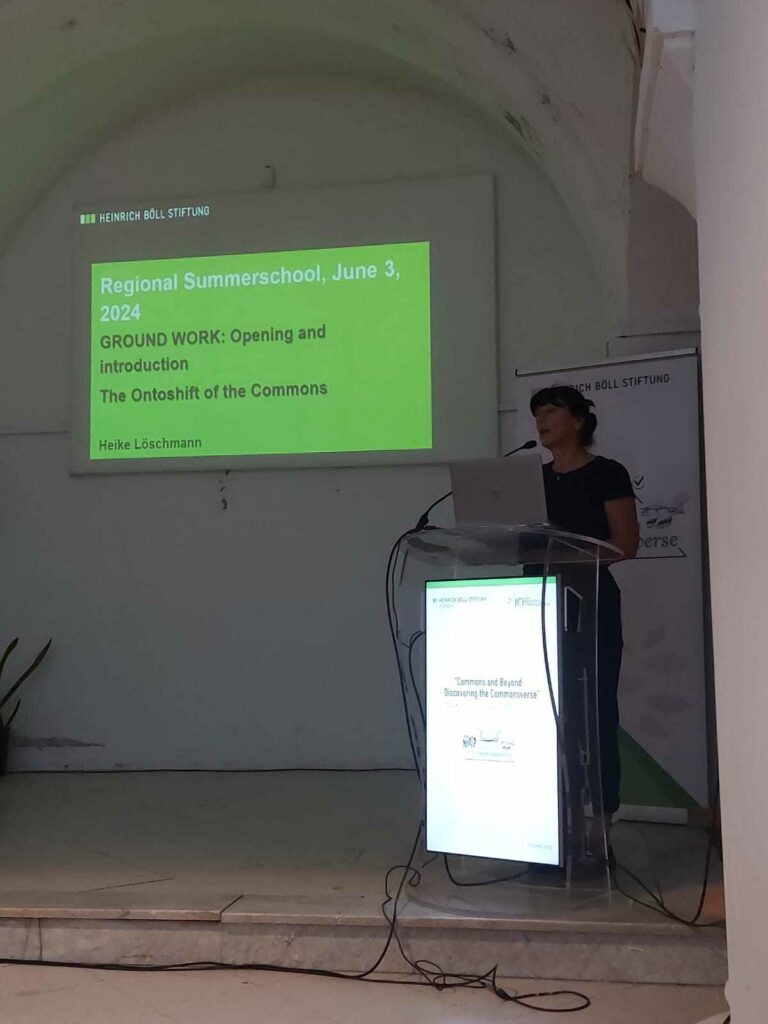
Emily Sarsam then introduced the triangle of commoning, followed by group work in a World Café format exploring cultural heritage, digital information, and natural resources. The day concluded with a conversation on alternatives to private property and pricing, featuring Emily Sarsam, Olfa Chebaane, and Arafet Ben Marzou. We have later produced a re-take of this discussion in the form of an Ecologia podcast: “Going Beyond Capitalism: Discovering the Commonsvers”.
Day 2 “Discovering local, independent business and support networks to keep the Medinas’ cultural and heritage Commons alive”:
Based on the premise that the Commons is not a theory but rather a practice and community organization, we invited the participants to visit the Medina of Tunis, which is overflowing with its multi-civilisational and multicultural history marked by an extraordinary diversity.
Participants visited heritage Commons and cultural initiatives in the Medina of Tunis, led by tour curators Adnen El Ghali, Farah Sayem, and Aymen Gharbi. A discussion on equitable, gender-inclusive, and sustainable communities was hosted by Saif Ghairi Thairi. The day ended with conversations on Commons-based approaches in arts and culture spaces with Reem Chekki, Clémence Hérault, and Aymen Gharbi, and an online presentation by Paris based Syrian artist Jaber Baker to introduce his project, the “Meaning Museum.”
Among the conclusions that can be made after the second day of the program is that the Commons cannot be considered as a new concept. It’s ‘’ An old-age tradition’’ like explained in our article on the community-oriented method of pooling and preserving resources in the South of Tunisia.
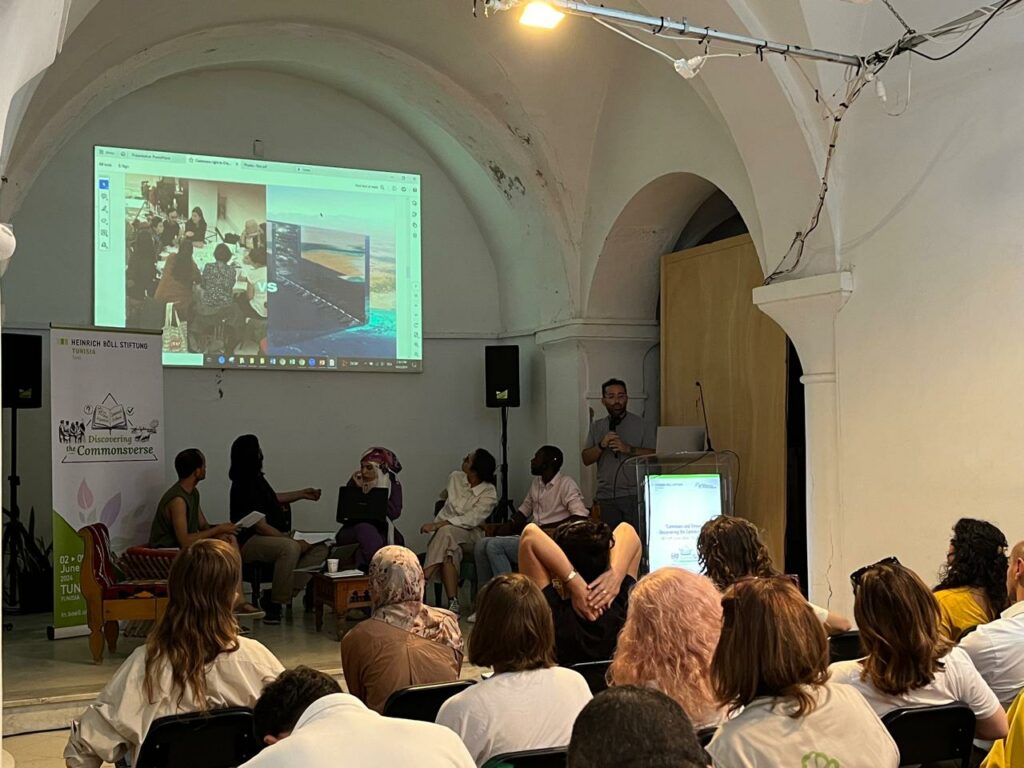
Day 3 “Advocacy and Policy Support for the Commons”: the Tunis office director, Heike Löschmann, led a session on creating interfaces for dialogue between the Commons and the state/market, followed by a discussion with representatives from the four MENA HBF-offices (Nidhal Attalah, Nidhal Attia, Loubna Al Youssfi and Christophe Maroun) on the role of the state in supporting Commons.
Emna Fourati hosted a film screening and debate on the cooperative Cecocesola Venezuela to introduce a successful large scale and long term sustainable Commons based project from this Latin American country. Cecocesola is an inspiring network of community organisations from low-income areas that produces and provides affordable goods and services to more than 100,000 families across seven Venezuelan states. The have received on September 29, 2022, the Right Livelihood Award, a Swedish prize often known as the “Alternative Nobel Prize.”
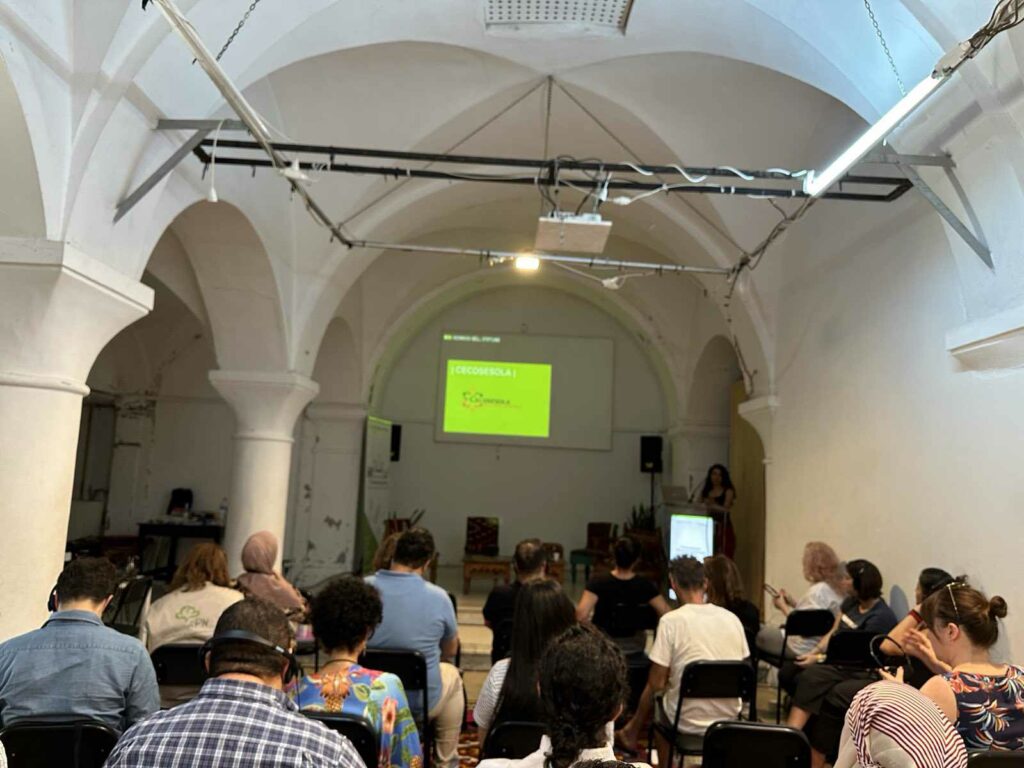
The day concluded with a gallery walk show-casing best practices in self-management of Commons worldwide. This gallery walk was based on the choice of 14 examples from the Catalogue for Changemakers by Commons expert David Bollier.
Bollier was also key note speaker for the Green lecturer in May 2023 (Link to the Green lecture talk) on the occasion of the book launch “ Free, Fair and Alive” in French under the title “Le Pouvoir Subversif des Communs” . Ecologica also produced a podcast with Bollier and Sarsam titled “ The insurgent power of the commons & the crisis of imagination”.
Day 4” Nature and Ecological Commons”: Participants traveled to Homrane Sustainable Community in Ain Drahem, engaging in field trips focused on water, seeds, and agro-ecology based commoning practices. Two sessions were held on the sustainable management of water resources and land use. The session discussed the challenges faced by the community in managing this natural resource equitably through specific rules. The discussion highlighted the strategies and practices for conserving and managing water that have been devised by the community in a responsible and sustainable way, using concrete examples from the MENA region, in particular the practices applied on the Homrane farm, which encourage sharing and mutual learning.
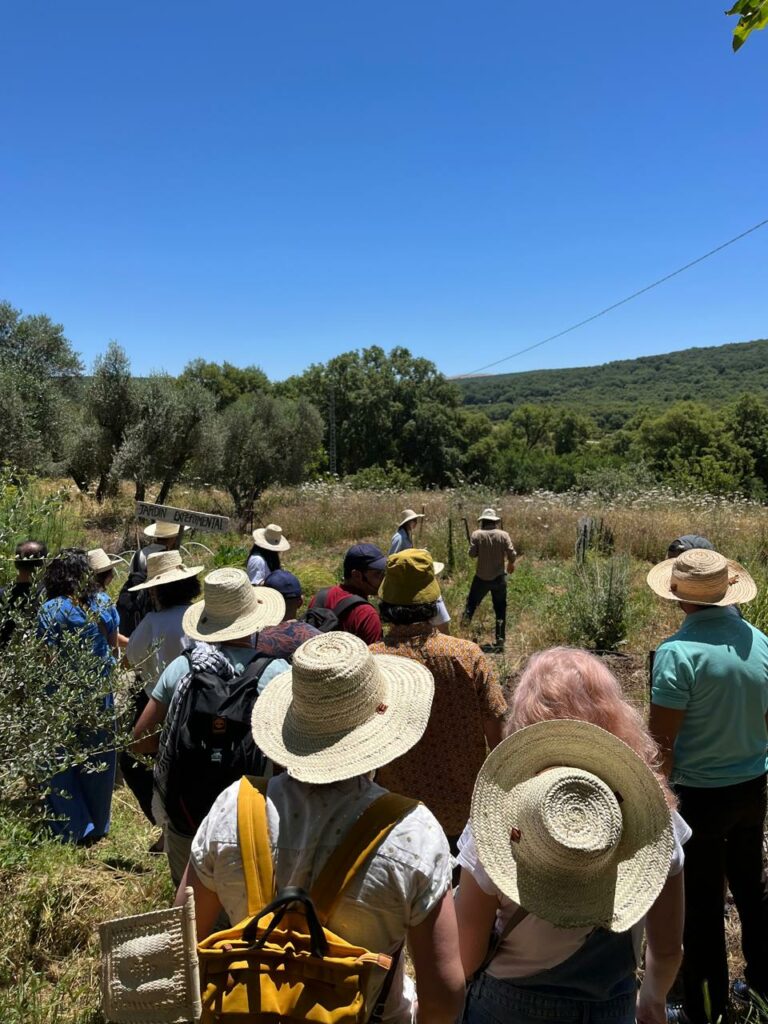
The day closed with the screening of the Lebanese documentary “Confronting the Beast,” followed by a discussion hosted by Alaa Al Sayegh.
Day 5 ”Harnessing Natural Resources and Ecology”: The day started with a hiking tour in the Homrane area to understand the surrounding landscape. Later on, Mariam Jaajaa and Nidal Attalah led a discussion on conflict and the dismantling of communal land rights in Palestine. The day ended with a session on collective governance and maintenance of Commons resources, featuring Ilyes Mkacher from Dar Emmima, Aida Trabelsi Grami from the GDA Dar Dedda Bizerte, and Lebanese Alaa Al Sayegh.
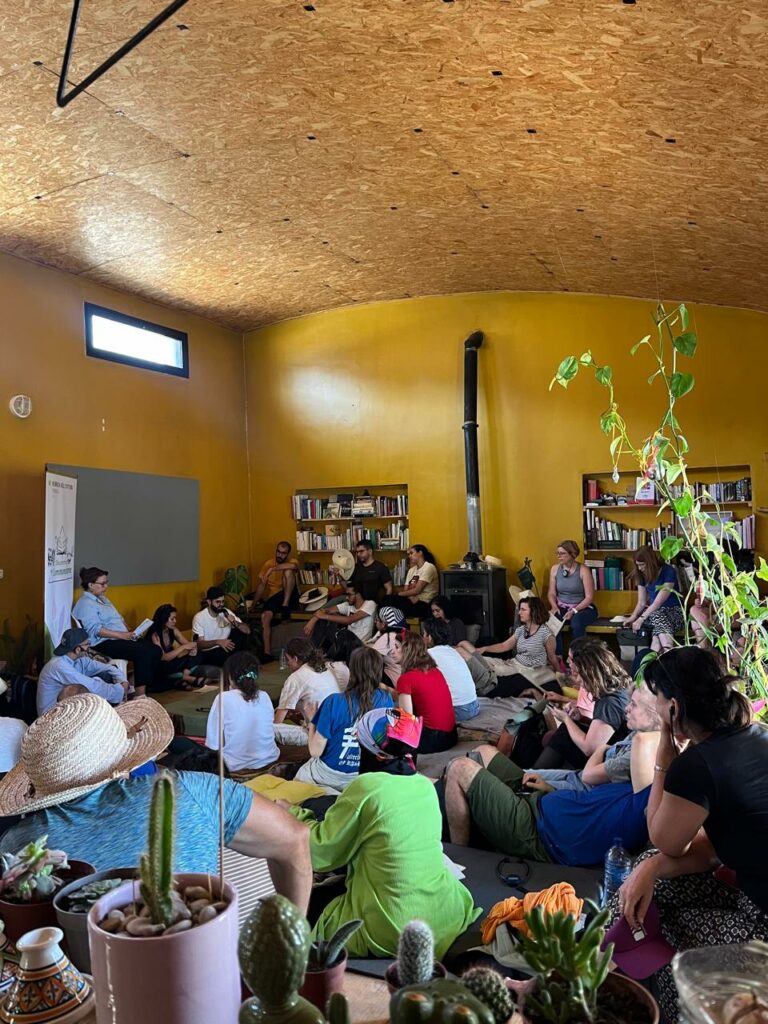
Day 6 focused on “A Gendered Approach to Commoning” and consisted of two main sessions: The morning session, organized and presented by Mahassen Segni and Saif Thairi from the Tunis office, focused on the link between care and communing in a capitalist reality. Their presentation was followed by a discussion and the screening of a short 3D animation film produced by HBS Tunis on care-centered economy. This morning session aimed to discuss the linkages between commons and care in patriarchal societies from a gender perspective, with a focus on the MENA region. Care was introduced as basically an “act of commoning”, as emphasized by Bollier and Helfrich in Free, Fair and Alive “Care occurs when people bring their full humanity to a task, rather than having interpersonal, money-mediated relationships with market resources.
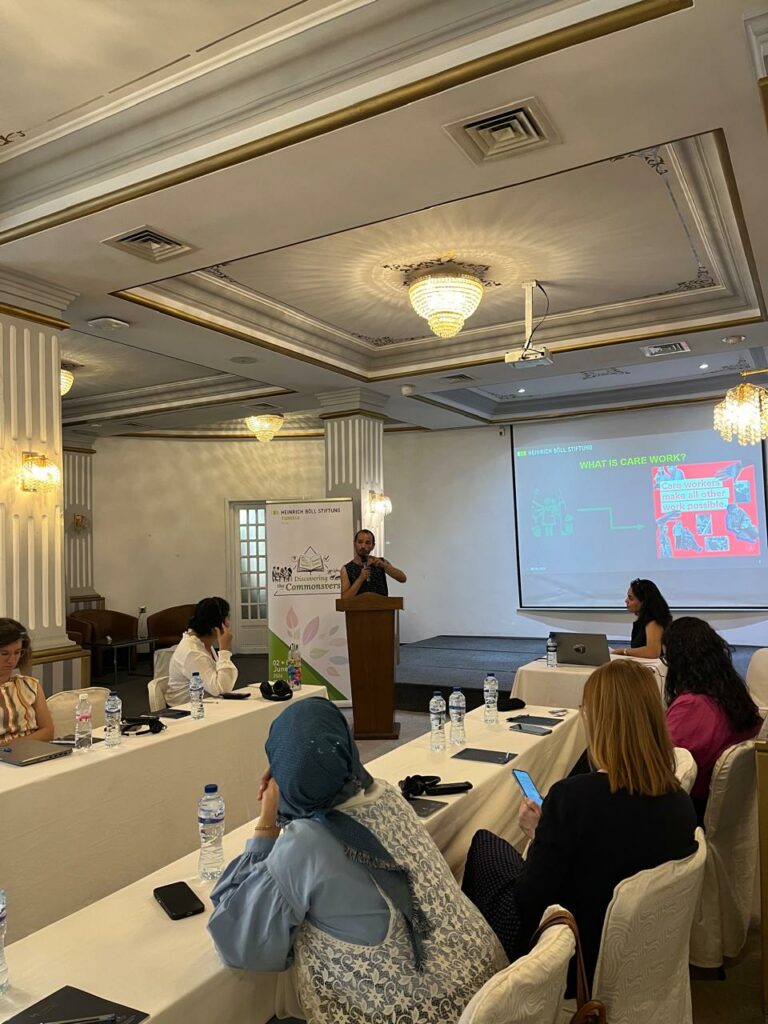
The second half of the day was dedicated to the launch of the Intersectionality Toolkit, co-authored by four Tunisian feminist activists and coordinated by Mahassen Segni from the Tunis office. The toolkit was introduced to a wider regional audience in an event held back-to-back with the Regional Summer School. The panel presenting the toolkit featured two of the four authors, Henda Chennaoui and Hazem Chikhaoui, and was moderated by the LGBTQI + intersectional activist Badr Baabou. This was followed by a discussion and three workshops that addressed the issues of access to land, access to water, and the freedom to dispose of one’s body using an intersectional lens.
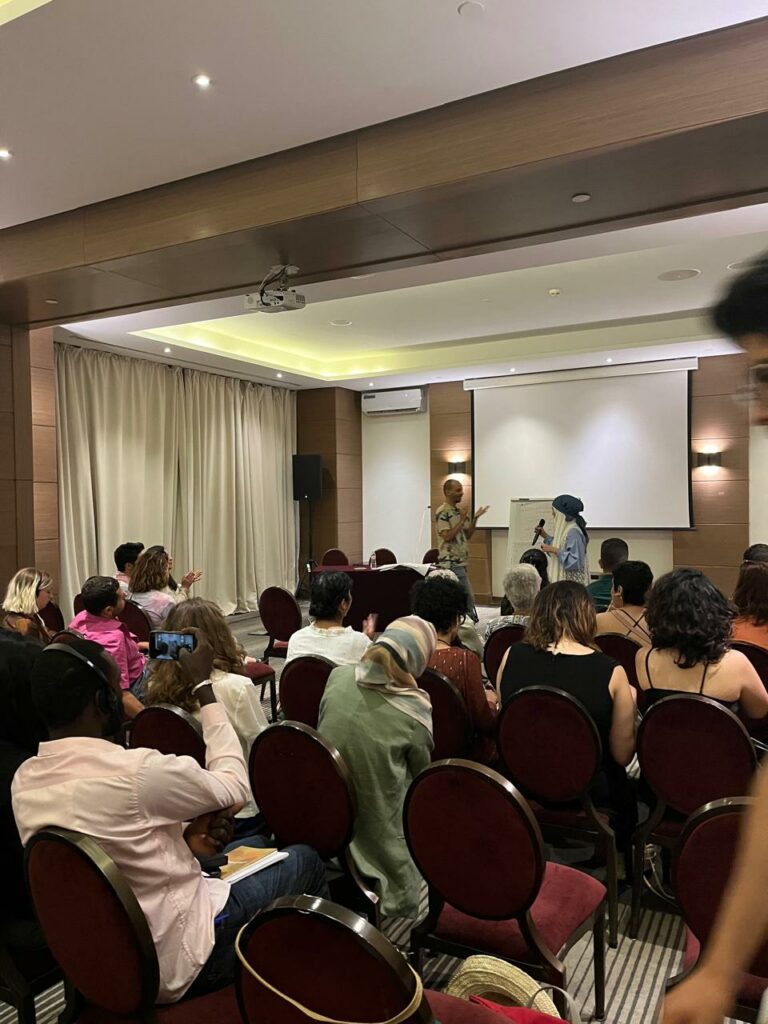
The program of this year’s MENA Regional Summer School was practice-oriented, featuring a variety of sessions and activities designed to explore the concept of Commons and its applications in different contexts. Participants engaged in discussions on cultural heritage, digital information, natural resources, and sustainable practices. Highlights were field trips, panel discussions, and interactive workshops. Overall, the summer school received predominantly positive feedback for its organization, content, and opportunities for networking and knowledge exchange. Participants expressed a strong interest in the theme, emphasizing the transformative potential of Commons-based approaches in addressing systemic issues in the MENA region.
We plan to continue our work around commons and commoning practices in Tunisia and hopefully in the larger MENA region and thus contribute to a much needed discussion on pathways into transformative economics and sustainable futures.



